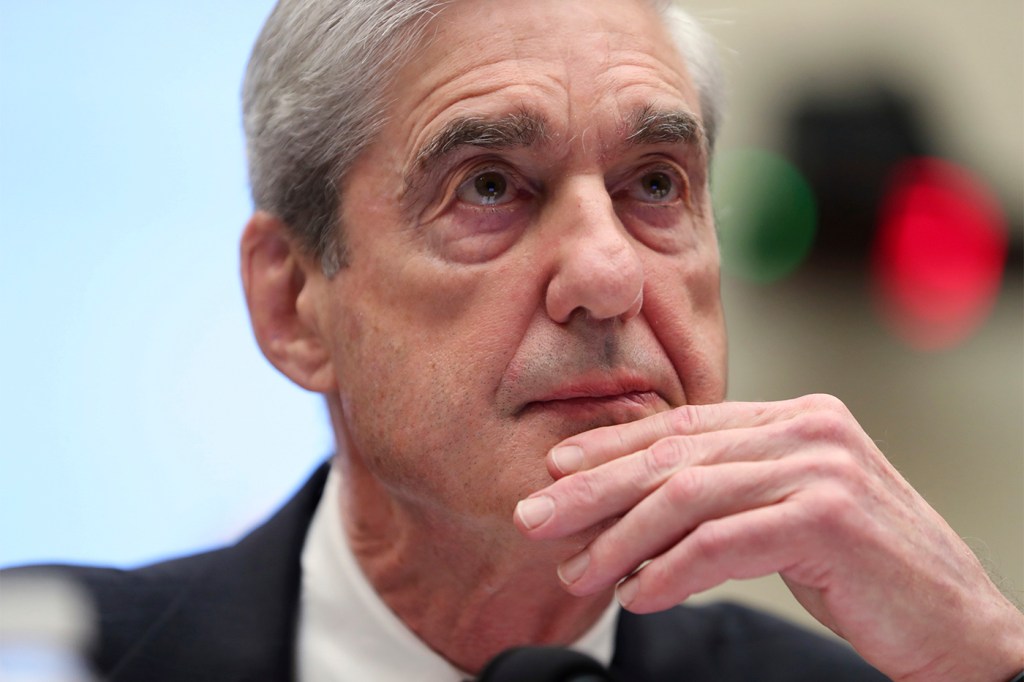Robert Mueller ‘appeared weary’ during his congressional testimony, says Northeastern University behavioral analyst Laura Dudley

Ever since his appointment in May 2017 as special counsel to investigate links between the Russian government and the presidential campaign of Donald Trump, American politics have eddied and swirled around Robert Mueller. For more than two years, voters and leaders alike have been waiting to hear him speak.
On Wednesday morning, with Republicans and Democrats hinging on his every word at his long-awaited congressional hearing, Mueller expressed reticence.
He was not a dominant presence. Throughout his examination by both sides of the political aisle, Mueller was meticulously polite but rarely assertive. After so many months of partisan duelling, the anticipated drama of his testimony gave way to anticlimax.
“This seems consistent with Mueller’s initial unwillingness to testify, and his reluctance to elaborate on his report,” says Laura Dudley, a behavior analyst at Northeastern.
Dudley viewed Mueller’s passive body language as, in part, an expression of his reticence to be drawn into the political spectacle of President Trump’s associations with Russia.
“He did not engage in behaviors that might suggest he was enjoying the hearing,” Dudley says of Mueller. “Sometimes during hearings, we see people who seem initially nervous and then begin to ‘settle in,’ appearing more comfortable, ad-libbing, and smiling. This did not happen with Mueller. If anything, he appeared more weary as the questioning continued.”
Mueller preferred to express himself with simple answers—“no,” “yes,” or “correct”—whenever possible. He frequently urged members of Congress to refer to the details as written in his 736-page report. He thumbed through the report throughout his testimony, but he declined to read aloud from it.
“When asked more complex questions, Mueller’s response was less emphatic and his speech was less polished,” says Dudley, who is also an associate clinical professor at the university who specializes in body language. “At times he stuttered or seemed to struggle to get his words out, particularly when congressmen asked him to confirm or deny data from his report, or when they rephrased portions of his report and asked him if the rephrasing was correct.
“At those points, Mueller would often stutter, ask for the person to repeat the question, or even answer one way and then change his answer after thinking about the question for a moment.”
Mueller was a reluctant witness throughout the 89th congressional appearance for the former FBI director. His testimony underscored and also helped to explain that reluctance. He maintained his poise throughout the hearing. But detailed or rambling queries appeared to confuse him.
“These complex questions would lead to Mueller pausing, looking up as he seemed to restate the question to himself, or asking the person to repeat the question,” Dudley says.
Mueller was so soft-spoken that the audience in the hearing room had difficulty making sense of some of his answers. He had warned that he would not be drawn into the political repercussions of his report. What was surprising was his refusal to defend himself. When attacked, he replied many times that he simply did not agree with the characterization.
“When Jim Jordan and Matt Gaetz questioned him,” says Dudley of Mueller’s most aggressive inquisitors from the Republican side, “he seemed to lean away from them. Otherwise, he sat upright throughout the testimony.”
In what may be the farewell appearance of a lifelong public servant, Mueller, 74, clearly wished for his report to do the talking for him.
For media inquiries, please contact Shannon Nargi at s.nargi@northeastern.edu or 617-373-5718.






